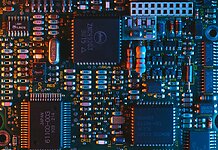As a passionate gamer, I’ve always been intrigued by the technical aspects that contribute to a seamless gaming experience. One crucial factor that often lurks behind the scenes is IOPS or Input/Output Operations Per Second. In this article, we’ll delve into the world of IOPS, exploring its significance and understanding how it affects gaming performance.
Key Takeaways
- IOPS measures the speed at which a storage device handles read and write operations, significantly impacting the responsiveness and speed of your system.
- IOPS is pivotal in determining how quickly your storage system can process tasks like loading game assets, launching applications, and saving progress.
- Different tasks demand varying IOPS requirements, with gaming generally requiring a decent IOPS rate for optimal performance.
What Is IOPS?

IOPS stands for “Input/Output Operations Per Second.” Think of it as a measure of how quickly a storage device, like an SSD (Solid State Drive), can do its job of reading and writing data[1]. Imagine your SSD as a super busy office worker who has to find and file documents all day. The IOPS number is like counting how many documents that worker can handle in a second. The higher the number, the faster the worker, or in this case, the SSD.
High IOPS is especially good for tasks that need lots of quick, small data grabs[2], like running a website or a database where you’re constantly asking for different bits of information. It’s like needing to find lots of different documents in our office analogy quickly. If the office worker is super fast (high IOPS), they’ll get the job done quicker, making everything run smoother and more efficiently.
Does IOPS Matter?
Whether IOPS (Input/Output Operations Per Second) matters significantly depends on the specific application and use case. Here’s a breakdown of scenarios where IOPS is particularly important[3]:
- Databases and Transactional Workloads: For databases that handle a large number of transactions, such as financial systems or e-commerce platforms, high IOPS can lead to faster data retrieval and processing. This is crucial for maintaining performance under heavy loads[4].
- Virtualization: In environments where multiple virtual machines (VMs) are running on a single physical server, high IOPS can improve the performance of the VMs[5]. Each VM typically generates its own set of I/O requests, so a storage system with high IOPS can better handle this concurrent demand.
- Enterprise Applications: Applications that require rapid access to data stored on disk, such as customer relationship management (CRM) and enterprise resource planning (ERP) systems, can benefit significantly from storage with high IOPS capabilities[6].
- High-Performance Computing (HPC): Scientific research, simulations, and any applications that involve processing large datasets quickly can require storage systems with high IOPS to keep up with the data throughput demands[7].
What Is Good IOPS For Gaming?
For gaming, the focus on IOPS (Input/Output Operations Per Second) is less critical compared to other storage performance metrics like sequential read and write speeds[8]. However, having a solid-state drive (SSD) with decent IOPS can contribute to an overall smoother gaming experience, especially in aspects like game loading times and the loading of game levels or textures on the fly in large, open-world games. Generally, the best gaming SSDs often have IOPS in the range of 650K to 1450K[9].
Related Helpful Resources By Tech4Gamers:
References:
- Carnegie Mellon University. Comparing Performance of Solid State Devices and Mechanical Disks. Retrieved from https://www.pdl.cmu.edu/PDL-FTP/PDSI/simsa-pdsw08.pdf
- BROADCOM. Getting The Hang Of IOPS v1.3. Retrieved from https://community.broadcom.com/symantecenterprise/communities/community-home/librarydocuments/viewdocument?DocumentKey=e6fb4a1b-fa13-4956-b763-8134185c0c0a&CommunityKey=63b01f30-d5eb-43c7-9232-72362b508207&tab=librarydocuments#a09
- William Stallings. Computer Organization and Architecture: Designing for Performance. Retrieved from http://home.ustc.edu.cn/~louwenqi/reference_books_tools/Computer%20Organization%20and%20Architecture%2010th%20-%20William%20Stallings.pdf
- St. Cloud State University. Analysis of SSD’s Performance in Database Servers. Retrieved from https://repository.stcloudstate.edu/cgi/viewcontent.cgi?article=1102&context=msia_etds
- VMTODAY. Storage Basics – Part II: IOPS. Retrieved from https://vmtoday.com/2009/12/storage-basics-part-ii-iops/#google_vignette
- Enterprise Storage Forum. The Importance of Understanding Application IO. Retrieved from https://www.enterprisestorageforum.com/management/the-importance-of-understanding-application-io/
- TechTarget. HPC storage requirements: Massive IOPS and parallel file systems. Retrieved from https://www.computerweekly.com/feature/HPC-storage-requirements-Massive-IOPS-and-parallel-file-systems
- Mike Lam, Professor. CS 261: Memory. Retrieved from https://w3.cs.jmu.edu/lam2mo/cs261_2018_08/files/19-memory.pdf
- AWS. Determine your IOPS and throughput requirements. Retrieved from https://docs.aws.amazon.com/prescriptive-guidance/latest/sql-server-ec2-best-practices/iops-requirements.html
FAQs
While IOPS is crucial, other components such as GPU, CPU, and RAM also impact gaming performance. Striking a balance between these elements ensures a well-rounded gaming setup for an optimal experience.
IOPS stands for Input/Output Operations Per Second and measures the speed at which a storage device can handle read and write operations.
IOPS directly impacts how quickly your storage system can process game data, affecting load times, responsiveness, and overall gameplay smoothness.
Thank you! Please share your positive feedback. 🔋
How could we improve this post? Please Help us. 😔
[Wiki Editor]
Ali Rashid Khan is an avid gamer, hardware enthusiast, photographer, and devoted litterateur with a period of experience spanning more than 14 years. Sporting a specialization with regards to the latest tech in flagship phones, gaming laptops, and top-of-the-line PCs, Ali is known for consistently presenting the most detailed objective perspective on all types of gaming products, ranging from the Best Motherboards, CPU Coolers, RAM kits, GPUs, and PSUs amongst numerous other peripherals. When he’s not busy writing, you’ll find Ali meddling with mechanical keyboards, indulging in vehicular racing, or professionally competing worldwide with fellow mind-sport athletes in Scrabble. Currently speaking, Ali’s about to complete his Bachelor’s in Business Administration from Bahria University Karachi Campus.
Get In Touch: alirashid@tech4gamers.com


 Threads
Threads
![Can A Motherboard Bottleneck A GPU? [Explained] Motherboard Bottlenecking GPU](https://tech4gamers.com/wp-content/uploads/2022/10/Can-A-Motherboard-Bottleneck-A-GPU-218x150.jpg)

![Is A Laptop Considered A PC? [Explained] Is Laptop a PC](https://tech4gamers.com/wp-content/uploads/2022/09/Is-Laptop-a-PC-218x150.jpg)
![PSU Voltage Ripple [Explained] 12V Rail Transformer and MOSFETs Mounted on the Vertical Daughter Board (Image By Tech4Gamers)](https://tech4gamers.com/wp-content/uploads/2024/05/MSI-MPG-A850G-850W-12V-Rail-Transformer-and-MOSFETS-Mounted-on-the-Vertical-Daughter-Board-Image-By-Tech4Gamers-218x150.jpg)